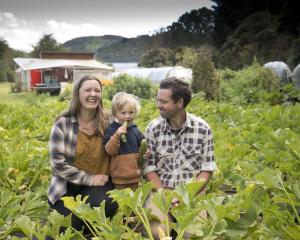
The voyage concentrated on the Chatham Rise, east of the South Island, where converging subtropical and subantarctic water masses create an environment salp thrive in.
She worked from noon to midnight every day studying the creatures, and spent her spare time filming footage of seabirds to go towards a documentary she is creating as part of her master's degree. Her time on the boat reaffirmed to her that she wanted to eventually create teaching resources.
"It was really cool to get all that filming done," she said.
Her time at sea was spent with three other ambassadors and a team of Niwa scientists, and she spent about 50% of time on deck and 50% analysing salp samples in the lab.
"I wasn't sure what to expect. The people on the boat were awesome.
"We got a really nice, kind of small, tight-knit team."
Salp also contribute to the ocean's carbon cycle by transferring significant amounts of carbon from the surface to deep waters.

She would also take questions from them and compile answers for the vlog.
"It was just a really, really cool opportunity to be able to be participating in the science."
A total of eight Otago students were made Sir Peter Blake ambassadors this year.
The programmes, which take place every year, are designed to advance understanding of some of the questions and challenges facing the environment, and enhance students' leadership capability.












